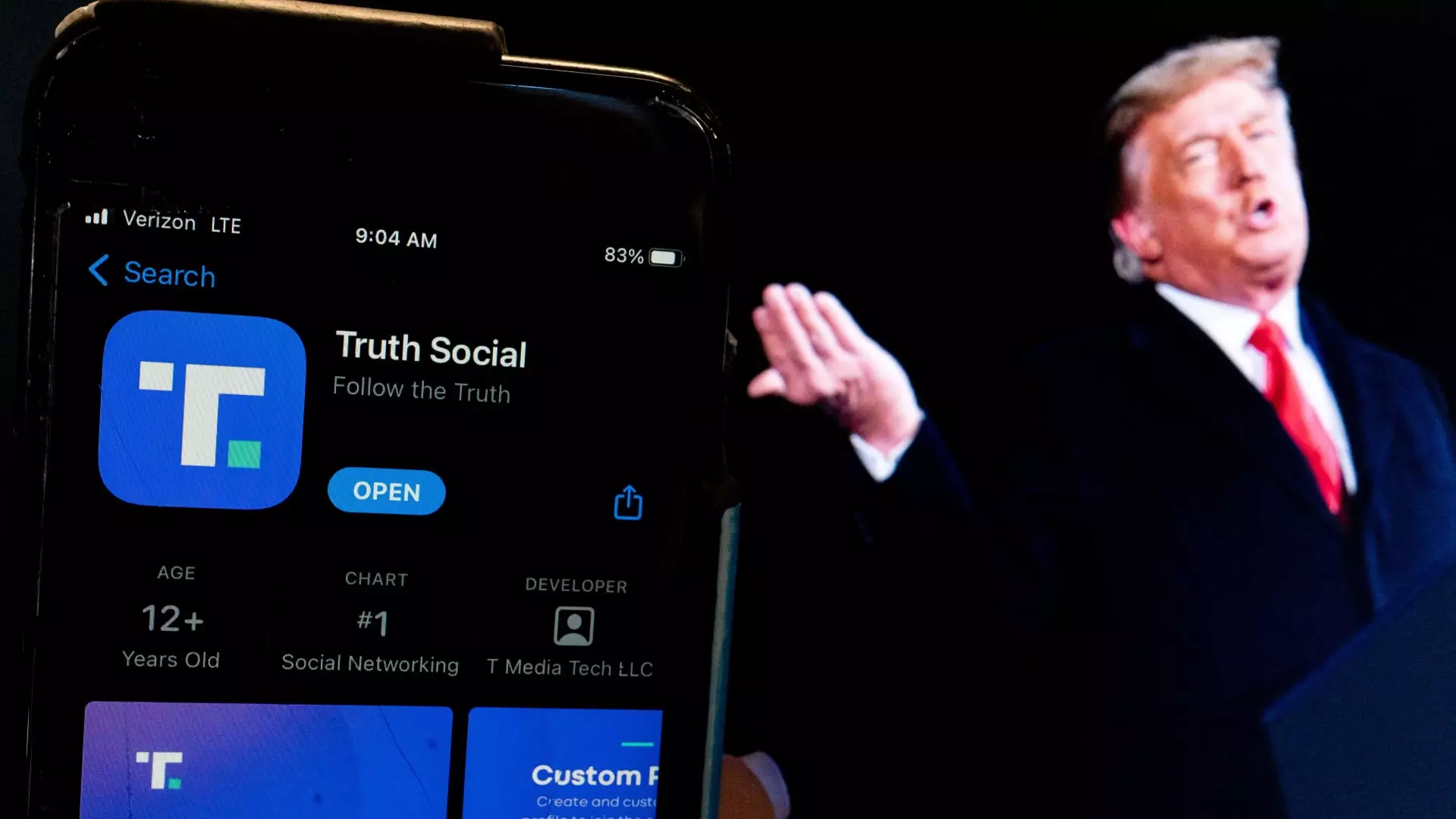The recent announcement from the Trump Media and Technology Group (TMTG) regarding its foray into financial services marks a significant pivot for the company, traditionally associated with social media under the Truth Social brand. This strategic expansion, highlighted by the introduction of a new division called Truth.Fi, signifies an embrace of the financial landscape that aligns closely with the interests of its core audience—individuals seeking alternatives to mainstream financial institutions.
The Launch of Truth.Fi and Its Implications
TMTG’s decision to establish Truth.Fi is underscored by a commitment to provide investment vehicles financed by an initial capital injection of $250 million, to be held with the well-known brokerage firm Charles Schwab. From the outset, the company has positioned this new venture as part of a broader mission to create a “robust ecosystem” for its users. TMTG CEO Devin Nunes stated that the creation of Truth.Fi will fortify support for “American First” values, aiming to offer products that resonate with sentiment around economic independence and resistance to perceived systemic bias in traditional financial services.
This endeavor reflects an increasingly vocal disdain within factions of the Republican party toward conventional banking systems, frequently cited as institutions that engage in selective scrutiny based on political beliefs. With claims from prominent figures, including former President Donald Trump, regarding de-banking practices that disproportionately impact conservatives, the emergence of services like Truth.Fi could be seen as a tactical response to that narrative, catering directly to an audience that feels marginalized by existing financial systems.
Following the announcement, shares of TMTG surged in premarket trading, indicating investor confidence in the new direction the company is taking. The stock’s reaction could also be interpreted as a reflection of the growing interest in cryptocurrency and alternative financial solutions following the tumultuous landscape in traditional financial markets. As these markets become increasingly intertwined with political discourse, it’s evident that TMTG is keen on capitalizing on sentiments that could strengthen its stock performance.
In essence, the financial products offered by Truth.Fi may effectively position the company at the intersection of finance and politics, leveraging its media platform to promote investment opportunities that attract a politically engaged demographic. The proposed focus on “American growth, manufacturing, and energy companies” speaks to a broader trend favoring domestic production and investment, which has gained momentum in recent years, particularly amid increasing scrutiny of international supply chains.
Truth.Fi’s entry into the financial sector will likely place it in direct competition with established players in the field. Recent moves by rivals, including Elon Musk’s X (formerly Twitter), to partner with financial institutions like Visa, add another layer of competition for Truth.Fi. Both companies are now competing for a similar audience that utilizes digital platforms not only for social interaction but also for financial transactions.
Musk’s collaboration aims to expand beyond social media, signaling a potential shift in how social networks could leverage financial services and crypto integration. As Truth.Fi positions itself to potentially become a competitor in this evolving landscape, the effectiveness of its marketing and its ability to resonate with its target demographic will be crucial.
Future Prospects and Challenges Ahead
As TMTG prepares to roll out its financial products and services later this year, the group will undoubtedly face challenges. Navigating regulatory scrutiny in a tightly monitored financial environment could prove difficult, particularly for a company straddling the line between media and finance. The regulatory landscape around cryptocurrencies and investment vehicles remains complex, and adherence to compliance standards will be critical for establishing credibility among consumers and investors alike.
Furthermore, the success of Truth.Fi will hinge on its ability to articulate a clear value proposition that distinguishes it from existing financial offerings. Should it become synonymous with alternatives to traditional banking and cater intelligently to its user base, it may well carve out a niche. However, the potential backlash from established financial institutions and the inherent risks of any new financial venture could pose hurdles that the company must navigate carefully.
Ultimately, the launch of Truth.Fi represents not just an expansion of services, but a strategic positioning of the Trump Media brand within a broader discourse on finance, freedom, and the socio-political dynamics that increasingly influence consumer behavior in America. Whether it succeeds in capturing market share amidst a heated competitive landscape remains to be seen, but its opening gambit is poised to disrupt the status quo in both finance and social media.


Leave a Reply